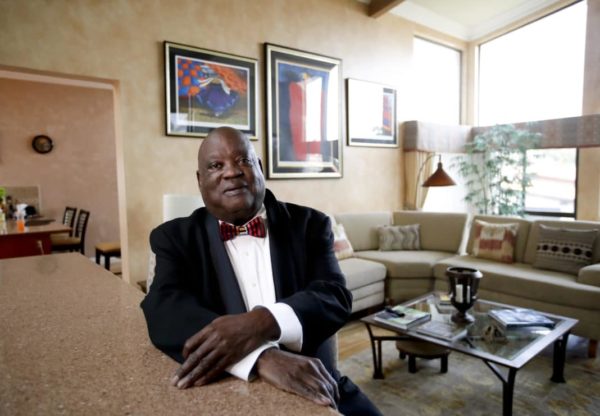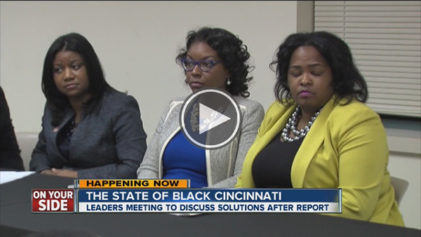
Westley Sholes, 78, a retired health care manager poses for a picture at his home in Rancho Palos Verdes, Calif., on Wednesday, May 30, 2018. (AP Photo/Chris Carlson)
CHICAGO (AP) — Black men with advanced prostate cancer fared surprisingly well in two new studies that challenge current thinking about racial disparities in the disease.
Blacks are more likely to get prostate cancer and to die from it than whites, but the new research suggests getting access to the same treatment may help balance the odds — even if it doesn’t greatly extend life after cancer has spread. Given the same standard treatments, blacks with advanced disease may do even better than whites, the studies suggest.
Both were presented Friday at an American Society of Clinical Oncology meeting in Chicago.
The lead author of one study, Susan Halabi of Duke University, said the results “are contrary to the mainstream understanding” that blacks fare worse than whites with prostate cancer. She said the analysis highlights the importance of minorities participating in medical studies.
Her report pooled results from nine studies in the U.S., Europe and Asia, and focused on the more than 7,000 whites and 500 blacks with advanced prostate cancer who had stopped responding to hormone therapy. Patients’ average age was 69 and most had cancer that had spread to their bones. The men were all treated with standard chemotherapy
The analysis found that black men fared at least as well as whites, with both groups surviving almost two years after starting treatment. But researchers found a slight survival advantage for black men — they were about 20 percent less likely than whites to die — when taking into account patients’ individual characteristics including tumor type and levels of PSA, a blood protein that can be elevated in cancer.
That blacks may do even better underscores the need to dig deeper to find out why, said Halabi. It’s possible black men who enroll in prostate cancer studies are healthier than other patients or they might have biological differences that makes them respond better to treatment, she said.
The results suggest that access to care is key, said Dr. Richard Schilsky, the society’s chief medical officer. If men are diagnosed later and not treated as quickly or as well, “of course the outcomes are going to be worse,” he said.
A separate, smaller study, led by Duke’s Dr. Daniel George, compared the prostate cancer drug Zytiga with prednisone in 50 blacks and 50 whites whose cancer had spread. The drug stopped cancer from spreading further for about 17 months on average in both groups. But declines in PSA levels, considered a promising sign, were greater in black men. Blacks also had different side effects — less high blood pressure but more trouble with low potassium levels. Janssen Pharmaceuticals, Zytiga’s maker, paid for the study but was not involved in the research.
Genetic testing in the study found racial differences that might make blacks respond better to Zytiga than whites, and the results suggest that the drug might have greater benefit if started earlier, before cancer has spread, George said.
Dr. Robert Dreicer, an expert for the cancer group and University of Virginia cancer specialist, called the results thought-provoking and said additional research on genetic differences might lead to new, more effective treatments for black men.
Dr. Adam Murphy, a Northwestern University physician who studies racial disparities in prostate cancer, said some reasons for low black enrollment in studies include poor overall health, money and mistrust of the medical establishment.
“We just need more patients enrolled,” Murphy said.
Denial also leads some men to delay seeking any kind of treatment, but Westley Sholes, 78, a retired health care manager in Rancho Palos Verdes, California, said he decided to be proactive after his father was diagnosed with advanced prostate cancer.
Sholes says he asked his doctor to do repeat scans. Results from the first were suspicious and the second done three months later detected early cancer. That was 20 years ago; Sholes had surgery and is doing well.
He credits good health insurance, excellent treatment and educating himself about the disease.
“Of course I was scared,” Sholes said. “I had top-notch awareness and the awareness overrode the reluctance to do something.”
___


